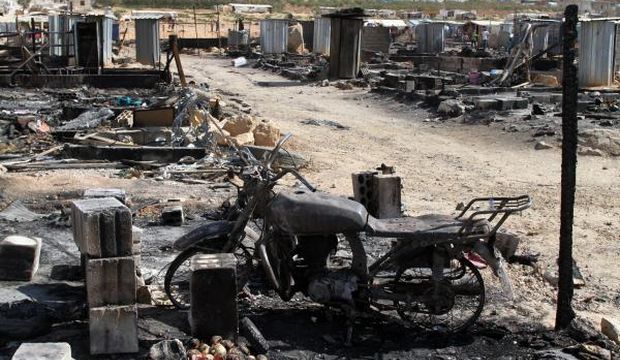Whether by choice or by force, the result was the same: the Lebanese media once again fell into the trap of the worst aspect of nationalism, blind loyalty. It was not limited to the sight of a newsreader wearing a military uniform in solidarity with the army, nor to lengthy and epic speeches recited by journalists and correspondents.
Lebanese coverage of the bloody confrontation in Arsal between the Lebanese army and the Al-Nusra Front’s insurgents showed the Lebanese media abandoning its professional role to report events as they are, to search for the truth, and to ask questions when necessary.
The coverage did none of these things. It was more like a Lebanese poetry festival that showcased the military’s statements, in a way that reflected badly on it. By this, I mean the naïve parroting of statements from military sources, ignoring totally the setbacks suffered by the army, and the plight of tens of thousands of besieged civilians and refugees caught under the bombardment and who suffered many casualties, including children. These victims became a direct target of the media and politicians, who accused them of allowing the insurgents into the town and giving them shelter.
Artists, journalists and various celebrities launched a solidarity campaign full of songs and resonant phrases, with words which showed a good deal of hypocrisy and hate-mongering against either the people of Arsal or the Syrian refugees, labeling them as members of the Al-Nusra Front, or simply as “terrorists.” A Lebanese journalist even issued a call via Twitter for every Lebanese to kill a Syrian, and then apologized and retracted her statement.
Yes, terrorists attacked a security post, and killed and took hostage a number of soldiers and officers. They took a whole town hostage, including Lebanese civilians and Syrian refugees, who numbered more than 150,000 in total. It was one of the most serious crises experienced by Lebanon, its army and its people.
In the face of a critical fact like that, why did so much of the country’s media choose to abandon objectivity? The decision was made when the media decided on self-censorship and followed army instructions banning journalists from entering Arsal for security reasons. The media was satisfied with merely reporting the army’s statements. The news in all outlets was the same, and the pictures too. The media supported the army by agreeing to broadcast only what the army’s spokesmen said and what they allowed to be filmed, giving up on revealing what was happening in Arsal.
Yes, we should give full support to the families of the officers and soldiers who fell or were taken hostage; but what about the civilians? What about those who were besieged in Arsal, whose tents were burned down and their children killed, and whose photos were only leaked via mobile phone?
The Lebanese media as a whole did not see the story of the civilians of Arsal as their concern. The media’s response to the army’s calls exposed its biases, and this is a mistake which often shames the media and prevents the development of national, moral and professional alternatives to sectarian agendas.
The decision of Lebanese journalists to support their country’s army is right and proper, but this support is not supposed to be unquestioning. If it is, it is against the nature of journalism, and the media’s job to report the truth.
How did terrorists from the Al-Nusra Front and the Islamic State of Iraq and Syria enter Lebanon? What happened in Arsal? What agreement allowed them to withdraw with the hostages? What was the role of Hezbollah? How do political divisions and Hezbollah’s fighting in Syria affect the role of the army and its authority? And why are hate campaigns against Syrian refugees tolerated? These are some of the questions which must be asked if the Lebanese media is to make up for its mistakes.

Trackbacks/Pingbacks